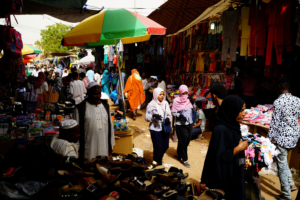In some, coverage won’t be widespread until 2023, if ever
THE WORLD HEALTH ORGANISATION (WHO) has often been the bearer of bad news during the covid-19 pandemic. It was among the first public-health authorities to warn about the emergence of the coronavirus; it was also early to sound the alarm about the risks of a bungled response. It was thus no surprise when, on January 18th, the agency issued yet another dire forecast. Tedros Adhanom Ghebreyesus, the WHO’s director-general, declared that the world was “on the brink of a catastrophic moral failure” because of the unequal international distribution of covid-19 vaccines. “Ultimately,” he warned, “these actions will only prolong the pandemic, the restrictions needed to contain it, and human and economic suffering.”
A report by the Economist Intelligence Unit (EIU), a sister company of The Economist, arrives at a similarly dire conclusion. It predicts that rich countries with access to proven vaccines—including America, Britain and most of the European Union—will manage to inoculate their most vulnerable citizens by mid-March. (The EU’s timetable may slip owing to a bitter spat over delayed vaccine deliveries by AstraZeneca, a British drugs giant.) Other rich countries should catch up by the end of June. Most middle-income countries, meanwhile, will not be able to do the same until late 2022. The only exception is Russia, thanks to its home-grown “Sputnik V” vaccine. (China and India also have their own vaccines, but will probably be stymied by the size of their populations.) In poorer countries, meaningful vaccination coverage—enough for life to return to normal—may not be possible until 2023, if ever




